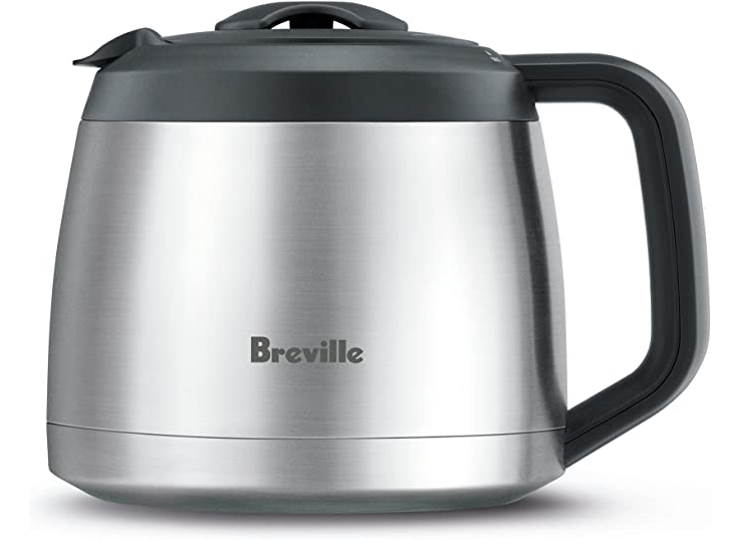For many of us, coffee is an essential part of life. To be able to function in the morning, to be able to keep working or studying, we need quality coffee. And for this reason, because it’s financially draining to get coffee from a local shop every day, investing in a decent coffee maker is highly crucial.
And Breville Coffee Maker is among the top choices. Unfortunately, though, after some time, even though ourcoffee makers look perfectly fine and clean, we face some problems, such as water flow blockage. And, since the reason for this most of the time is the hard water, this article will discuss how to descale Breville Coffee Maker.
What Happens If You Don’t Descale Your Coffee Maker?
Before we dive into the descaling process, let’s talk about what happens if you don’t descale because I know, with a busy schedule, it will be easier just to ignore this situation. We mentioned that the problem is the hard water, so what exactly is it? Hard water is defined as having a high concentration of calcium and magnesium minerals. Although drinking hard water is not harmful, it can clog coffee makers and needs extra attention to be removed.
It is ineffective to regularly clean removable parts with soap and water or coffee maker cleaning pills. So, you must descale your machine to get rid of these mineral stains because mineral buildup could harm your coffee maker. And not only that, the entire flavor of the coffee cannot be extracted if the machine cannot reach its ideal brewing temperature. The accumulations could prevent smooth water movement. The device might not function if it is not removed.
How to Know If Your Coffee Maker Needs Descaling?
If you are unsure that your coffee maker needs descaling, there are a couple of things you can watch out for, such as delayed heating. Of course, you’ll have to pay great attention and have this impact sink in before you see it. Nevertheless, if scales have been building up for a while, you can have heating delays. This is because water is no longer in direct contact with a heat-conductive surface.
Also, given that mineral buildups are being poured into your machine, having a different flavor in your coffee may signal that it needs to be descaling. There is both good and bad news in the circumstances like this. The bad news is that the coffee the machine produces isn’t very excellent, and most of that is because of buildups.

Breville Coffee Maker Descaling Process
Before learning how to descale Breville Coffee Maker, first, you will need to choose the product; you can either go with vinegar or a descaling solution. While a ready-made descaling solution is a good choice, if you want, you can make your solution at home from one part water and one part vinegar too. The only essential at this step is to use an acidic substance because magnesium and calcium deposits are essential.
So, how to prepare this solution at home? It is recommended that you use white vinegar. Fill the water reservoir of your coffee maker with a mixture of one part vinegar to one part water. Then, put the vinegar-water mix in the reservoir. Perform several brew cycles until you have consumed all of the vinegar solutions. And then, add more water to the water tank.
Run four to five water-only brewing cycles. You must complete this step if you want your coffee to taste regular after your next brew. Don’t scrimp on this step because drinking the descaling solution isn’t harmful, but it doesn’t taste good. As you can see, it’s simple as that. Preparing the solution will take only five minutes, and whether you choose a ready-made solution or a homemade one, the whole process will only take thirty minutes!
Are There Any Alternatives to Vinegar?
Yes, if you’d rather not use vinegar, there are a couple of alternatives. Citric acid is the second most popular option after vinegar. Importantly, because citric acid is acidic, it effectively dissolves mineral deposits. To acquire the proper strength, dissolve one tablespoon of citric acid pellets in one gallon of water. Then, use the vinegar solution as you would in the preceding procedures.
The aftertaste is significantly less overpowering when using citric acid instead of vinegar, which is one of its best features. Even if you choose citric acid over vinegar, we advise you to rinse the machine after 3-5 brew cycles fully. However, if some are left behind, it won’t have as much of an impact on the flavor of your coffee. Lemon juice, which has substantial citric acid concentrations, is the third choice if neither vinegar nor citric acid appeals to you.
One part lemon juice to two parts water is ideal for lemon juice strength. Lemon juice is the most practical choice if you’re concerned about taste retention and is more widely available than citric acid, but it performs the least well in terms of real descaling. Again, though, we advise using vinegar or a ready-made descaling solution because they work best. Because you shouldn’t have any aftertastes if you rinse your Breville thoroughly after descaling it.
Conclusion
To sum it up, you must always anticipate that a coffee maker requires maintenance. Because if you want to maintain the quality of your beverages, weekly maintenance is necessary. This way, not only the items you will serve taste better, but also you will be preserving your coffee machine’s life. For best care, you can descale every 16 weeks and check for mineral deposits every week.
This is essential for Breville coffee makers because they need to be maintained to function properly. Cleaning and decalcifying a coffee machine are two distinct maintenance procedures. These two techniques should be known to a barista and when to use them. Owners of Breville coffee makers are aware of how prudent it is to buy one but also how difficult it is to maintain one.


